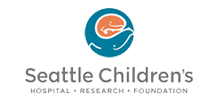
Child Health
Participate in Research is designed to connect potential volunteers with open research studies. We are looking for volunteers just like you to help answer important questions about child health. This page lists child health studies that may apply to you or someone you know. If you find a study that you’d like to participate in, you can contact the study team with questions or to volunteer. Join us to improve the health of others.
More Information
Seattle Children's Studies
Seattle Children’s offers a number of pediatric-focused studies.
Learn MoreActive Studies
The purpose of this virtual study is to explore social media experiences and well-being. The link for the screener survey, administered in REDCap, is available here: https://redcap.iths.org/surveys/?s=K49AFKTDDRYJ4HJH Our research aims to deepen our understanding of how teens use and experience social media as compared to…
We are conducting a study to understand the role of problem-solving in challenging behaviors for children with Down syndrome so that we can better understand the development of and treat these behaviors. If you agree to participate, this study will involve questionnaires, some of which…
The purpose of the CUB Study is to improve our understanding of brain development in infants whose mothers used cannabis during pregnancy and in those whose mothers did not. Although cannabis use has increased among pregnant and non-pregnant people nationwide, there is still limited and…
Calling all caregivers with little ones! We are currently recruiting infants under six months to co-enroll with a biological older sibling (3 years or older) in the Sibling Language Development study. The goal of the study is to investigate the underlying neural mechanisms in infants…
This study aims to explore the effects of Partial Body Weight Support (PBWS) within an enriched play environment for infants with Down Syndrome (DS), who are not yet walking, to better understand how PWBS may impact their mobility; exploration; and overall activity level. Participant Eligibility…
Researchers at Seattle Children’s are looking for caregivers of children without autism spectrum disorder or challenging behaviors (e.g., aggression, destruction) to take part in a 30-minute online survey study and a one-time in-person EEG and cognitive assessment visit. The goal of this study is to…
Previous studies have shown that battery-powered, adapted toy ride-on cars can be used by young children with disabilities to socialize and independently explore their world. In this study, we measure how children learn to use a powered mobility device, and how using the device impacts…
Early language skills are important for academic outcomes. We are investigating how bilingual learners develop two languages. We want to know what types of language exposure children hear in English and Spanish, how children interact with their parents in English and Spanish at home, and…
This is a multicenter longitudinal study that aims to validate a set of measures that were previously identified as promising candidate biomarkers and/or sensitive and reliable objective measures of social function in ASD for potential use in clinical trials. The confirmation study will repeat the…
The aim of the proposed study is to examine the experience of parents of school-age children during the COVID-19 pandemic. Parents are filling multiple conflicting roles during this pandemic as they juggle their own jobs and the new role of teacher to their child(ren), while…
Ambulatory children with cerebral palsy (CP) walk predominately in low intensity stride rates with little variability, thus limiting their walking activity and ability to participate in daily life. In contrast, typically developing (TD) children engage in short bursts of intense walking activity interspersed with varying…
Ambulatory children with cerebral palsy (CP) experience walking limitations which negatively influence their ability to physically participate in day to day life. The investigators propose that impaired muscle power generation is the key limiting factor affecting walking activity and participation. This proposal represents a combined…
Ambulatory children with cerebral palsy (CP) demonstrate altered lower limb biomechanical alignment in walking (e.g. excessive hip/knee flexion or equinus during stance) and experience walking activity limitations that negatively influence their ability to participate in day to day life. Ankle Foot Orthoses (AFO) are a…
The WONDER research study uses technology and behavioral assessments to monitor and map social brain development. The study consists of 5 in-person study visits during the first three years of life at our research lab in Seattle. During visits, researchers will record brain activity and…
The University of Washington Institute for Language and Brain Sciences is recruiting hard of hearing infants between 2 and 12 months of age who have a mild-to-moderate hearing loss. This study looks at the effects of hearing loss on early brain development and learning. The…
The Infant Brain Imaging Study, or IBIS, is a research study of brain development in infants and children. The IBIS Network is a consortium of researchers across North America, including the University of Washington, that work together to discover early changes in brain development of…
The Infant Brain Imaging Study, or IBIS, is a research study of brain development in infants and children with autism. The IBIS Network is a consortium of researchers across North America, including the University of Washington Autism Center, that work together to discover early changes…
Our team is the NeuDLL (Neurodevelopmental Disorders Language & Learning) Lab in the UW Speech & Hearing Department. We are seeking families to participate in research related to spoken language in children with and without developmental disorders. Our current study focuses on how children learn…






